An IP docket specialist plays a crucial role in the management and protection of intellectual property rights. This article delves into the various aspects of the position, including the importance of intellectual property (IP) itself, the specific responsibilities of a docket specialist, and the path to becoming one.
Understanding Intellectual Property (IP)
Intellectual property (IP) refers to creations of the mind, including inventions, literary and artistic works, designs, symbols, names, and images used in commerce. It encompasses various legal rights that allow creators and owners to protect their intellectual endeavors.
Definition and Importance of IP Rights
IP rights enable individuals and organizations to safeguard their innovations and creative expressions. These rights are vital because they:
- Encourage creativity and innovation by providing economic incentives.
- Facilitate market differentiation, enabling businesses to distinguish their offerings.
- Protect consumers by ensuring that they receive genuine and quality products.
In today’s fast-paced, technology-driven world, IP is paramount for maintaining a competitive edge. It fosters progress and helps in the economic development of industries. The ability to enforce IP rights can also lead to increased investment in research and development, as companies feel more secure in their ability to recoup their investments. Furthermore, a robust IP framework can attract foreign direct investment, as international companies seek environments where their intellectual assets will be protected.
Different Types of IP
There are several types of intellectual property, each serving a unique purpose:
- Patents: Protect inventions and grant exclusive rights to the inventor for a limited time.
- Trademarks: Safeguard symbols, names, and slogans that distinguish goods and services.
- Copyrights: Protect original works of authorship, including literature, music, and art.
- Trade Secrets: Protect confidential business information that provides a competitive advantage.
Each type of IP plays a crucial role in fostering an environment where creativity and innovation can thrive. For instance, patents not only incentivize inventors by granting them exclusive rights but also contribute to the public domain once they expire, allowing society to benefit from new technologies. Trademarks, on the other hand, not only help businesses build brand loyalty but also serve as a form of consumer protection, ensuring that customers can identify the source of a product.
Copyrights encourage artistic expression by ensuring that creators can control the use of their works, while trade secrets allow companies to maintain a competitive edge without disclosing sensitive information. This intricate web of protections ensures that innovation continues to flourish across various sectors of the economy.
The Importance of IP Docketing
IP docketing refers to the systematic organization and management of IP rights, ensuring timely responses to deadlines related to patents, trademarks, and other IP protections. It is an essential function that aids in compliance and thorough management.
The Role of Docketing in IP Management
Docketing provides a framework for IP management, enabling organizations to:
- Monitor deadlines and crucial dates related to filings and renewals.
- Ensure compliance with legal obligations and minimize the risks of losing IP rights.
- Facilitate communication among various stakeholders in the IP management process, including attorneys, inventors, and business units.
Moreover, effective docketing systems can integrate with other business processes, allowing for a seamless flow of information. This integration can enhance the strategic decision-making process by providing insights into the status of IP portfolios and potential areas for expansion or improvement. By leveraging data analytics, organizations can also identify trends in their IP filings, which can inform future innovation strategies and resource allocation.
Risks of Inefficient Docketing
Inefficient docketing can lead to significant risks for organizations, such as:
- Missed deadlines, which can result in the loss of IP rights.
- Increased litigation exposure due to poorly managed IP assets.
- Financial losses stemming from improper IP management and compliance failures.
The detrimental effects underline the necessity for organizations to invest in effective docketing practices and skilled professionals to oversee IP assets efficiently. Additionally, the complexities of international IP laws can further complicate docketing efforts.
Companies operating in multiple jurisdictions must navigate varying deadlines, requirements, and regulations, making a robust docketing system even more critical. Without a comprehensive approach, organizations risk not only losing their competitive edge but also facing reputational damage in the marketplace.
The Job of an IP Docket Specialist
IP docket specialists serve as the backbone of IP management within an organization. They ensure that the myriad timelines and deadlines associated with IP filings are meticulously tracked and honored. Their role is not only about keeping records but also about safeguarding the organization’s intellectual property, which can be one of its most valuable assets. With the rapid pace of innovation and the increasing complexity of IP law, the importance of this position has never been more pronounced.
Key Responsibilities and Tasks
The role encompasses a range of key responsibilities, including:
- Maintaining an organized IP docketing system that tracks deadlines for filings, renewals, and other essential activities.
- Preparing and filing necessary documentation with the relevant intellectual property offices.
- Coordinating with legal teams to ensure that all filings comply with applicable laws and regulations.
- Conducting periodic audits of IP assets to verify the currency and accuracy of information.
These tasks highlight the vital nature of the role, as failure to perform effectively can jeopardize the organization’s IP protection. Furthermore, IP docket specialists often serve as the first line of defense against potential infringements or lapses in protection, making their vigilance essential. They must stay informed about changes in IP law and emerging trends in the industry to proactively address any challenges that may arise.
Required Skills and Knowledge
To excel as an IP docket specialist, certain skills and knowledge are essential:
- Strong organizational abilities to manage multiple deadlines and ensure accurate tracking.
- Attention to detail to avoid errors that could lead to legal complications.
- Familiarity with IP laws, regulations, and compliance requirements.
- Proficiency with docketing software and tools for effective management.
Additionally, interpersonal skills are crucial for effective collaboration with various teams and stakeholders involved in IP management. The role often requires liaising with inventors, patent attorneys, and external counsel, necessitating a clear communication style and the ability to translate complex legal jargon into understandable terms. Moreover, as organizations increasingly operate on a global scale, an understanding of international IP regulations and the ability to navigate different jurisdictions can significantly enhance an IP docket specialist’s effectiveness, making them an invaluable asset to their team.
Becoming an IP Docket Specialist
The journey to becoming an IP docket specialist involves a combination of educational qualifications and experience.
Educational Requirements
Typically, candidates seeking to enter this field should have:
- A bachelor’s degree, ideally in a related field such as law, business, or science.
- Specialized training in intellectual property laws and management.
Many positions may also favor candidates with certification in IP docketing, which can be obtained through professional organizations offering relevant training and resources. These certifications not only enhance a candidate’s resume but also provide essential knowledge about the intricacies of patent and trademark processes, including filing deadlines, maintenance fees, and compliance issues. Furthermore, aspiring specialists might consider workshops and seminars that focus on the latest trends in intellectual property law, as staying updated is crucial in this ever-evolving field.
Career Path and Progression
Starting as an IP docket specialist can lead to various career opportunities. Potential paths include:
- Advancement to an IP Manager or similar role, overseeing more extensive IP portfolios.
- Specialization in specific areas of IP law, leading to positions such as IP Counsel.
- Transition to related fields such as compliance or corporate law, leveraging IP knowledge.
Continuous professional development will be key to moving up the career ladder in the IP field. Engaging in networking opportunities through industry conferences and joining professional associations can significantly enhance one’s career trajectory.
Additionally, many successful IP docket specialists emphasize the importance of mentorship, as learning from experienced professionals can provide invaluable insights into navigating complex IP issues and understanding the nuances of client management. As the demand for intellectual property protection grows globally, the role of the IP docket specialist becomes increasingly vital, making this a promising career choice for those passionate about innovation and legal frameworks.

The Impact of an IP Docket Specialist
An IP docket specialist’s role extends beyond basic administration; they have a profound impact on the organization’s overall IP strategy and success.
Influence on IP Protection
By ensuring that IP assets are accurately managed, specialists play a critical role in maintaining the organization’s competitive edge. Their diligent tracking of deadlines and compliance requirements safeguards intellectual property and contributes to the overall health of the company’s assets.
Furthermore, they are often the first line of defense against potential infringements, as they monitor the landscape for any emerging threats to the organization’s IP. This vigilance not only protects current assets but also informs future strategies for development and expansion.
Contribution to Business Success
Effective IP management directly correlates with business success. An IP docket specialist aids in:
- Reducing legal risks and potential losses by ensuring compliance.
- Facilitating innovation by protecting valuable assets, and encouraging further development.
- Optimizing the IP portfolio, thus maximizing the value derived from the organization’s intellectual property.
This strategic contribution highlights that the role of an IP docket specialist is indeed pivotal in navigating the complexities of intellectual property. In addition to these responsibilities, they often collaborate closely with R&D and marketing teams to align IP strategies with business objectives. By understanding the nuances of new product developments and market trends, they can provide invaluable insights that help shape the organization’s IP landscape. This proactive approach not only fosters a culture of innovation but also ensures that the company is well-positioned to capitalize on new opportunities as they arise.
Conclusion
The position of an IP docket specialist is integral to the successful management and protection of intellectual property within an organization. Through effective docketing practices, these professionals not only mitigate risks associated with IP mishandling but also drive business success. As the landscape of intellectual property continues to evolve, the demand for skilled IP docket specialists remains critical, making it a rewarding career path for those passionate about IP law and management.
Computer Packages Inc. (CPI) is a privately owned IP management company with over fifty years of experience serving the IP community. Our mission is to be the most trusted partner in safeguarding clients’ IP assets with innovative IP management software and annuity services. Learn how we specialize in IP patent, trademark, and annuity management by exploring our services.


